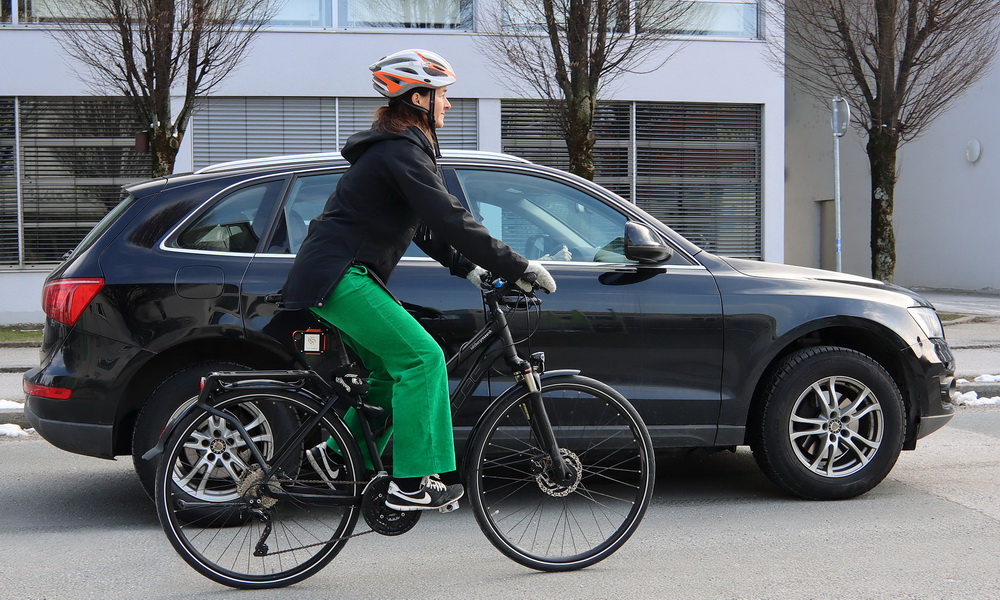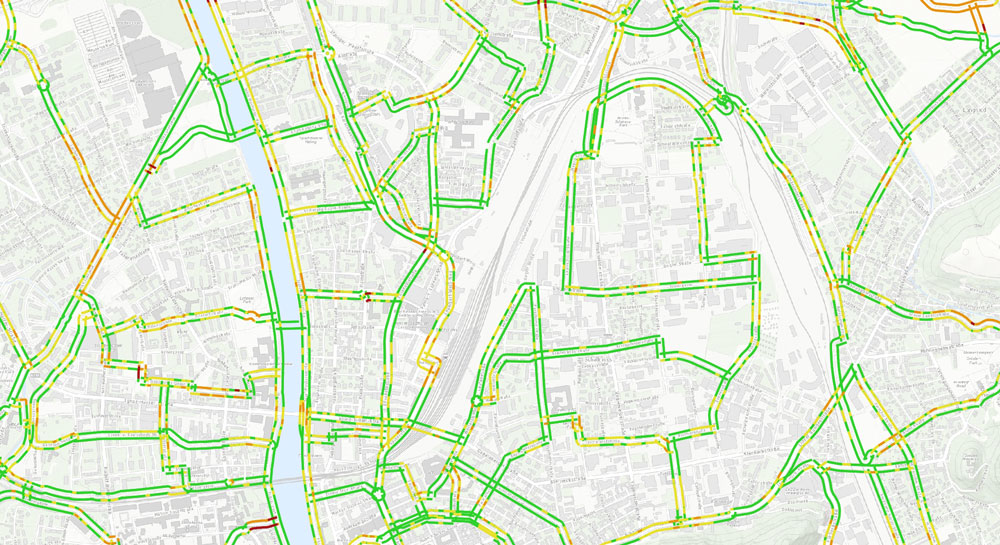
Cycling safety in confined road conditions
Cycling is an important component for achieving national and European climate goals. This is why Germany, Austria and Switzerland are pushing for the rapid expansion of the cycle path network. In cramped road conditions, however, safe cycling guidance becomes a challenge. A transnational consortium under the leadership of Salzburg Research is investigating not only objective safety but also the subjective perception of safety and is developing evidence-based recommendations.
In cramped road conditions, especially in critical cross-sections with lane widths of only six to 8.5 metres, conflicts and incidents with the various road users increase. Overtaking manoeuvres with little distance, so-called “dooring” accidents with parked vehicles, but also conflicts with pedestrians when cyclists swerve into the side space are inevitable.
Although the regulations in the DACH region contain recommendations for the guidance of cyclists on such stretches of road, they are handled very differently. New solution options such as overtaking bans, protective lanes, bicycle pictogram chains or encounter zones are being discussed and partly also applied. A transnational consortium is now developing evidence-based recommendations for cycling guidance, especially in confined road conditions, as well as technically sound considerations between different alternative solutions.
Investigated for the first time: objective and subjective safety
For the first time, a comparative empirical data basis on objective safety as well as on the subjective perception of safety for representative stretches of road and different cycling routes is created in this research work.
Both mobile and stationary sensor technologies – ultrasound, LIDAR and video – are used to measure objective safety. In addition, in all three DACH countries, the subjective perception of safety is also surveyed by means of interviews and sensor technology for stress measurement.


RADBEST is a commissioned R&D service of the Austrian Federal Ministry for Climate Protection (BMK), the German Federal Ministry of Digital Affairs and Transport (BMDV) and the Swiss Federal Roads Office (ASTRA) under the programme management of the Austrian Research Promotion Agency mbH (FFG).
For more information see press release (in German): Mehr Sicherheit für Radfahrende in beengten Straßenverhältnissen







